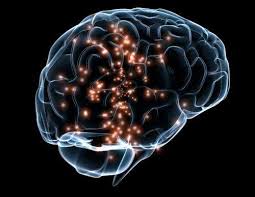
20 December 2015 – Having just watched Inside Out (for what I think is the 4th time with the kids), I found this article of keen interest.
UMass Amherst scientists have analyzed fMRI data to link brain architecture with consciousness and abstract thought. Said neuroscientist Hava Siegelmann:
“We momentarily thought our research failed when we saw that each cognitive behavior showed activity through many network depths. Then we realized that cognition is far richer, it wasn’t the simple hierarchy that everyone was looking for. So, we developed our geometrical ‘slope’ algorithm. With a slope identifier, behaviors could now be ordered by their relative depth activity with no human intervention or bias”.
They ranked slopes for all cognitive behaviors from the fMRI databases from negative to positive and found that they ordered from more tangible to highly abstract. You can read the full abstract here.
Siegelmann also noted:
“‘Deep learning is a computational system employing a multi-layered neural net … the brain’s processing dynamic is far richer and less constrained because it has recurrent interconnection, sometimes called feedback loops. We are now creating a massively recurrent deep learning network for a more brain-like and superior learning AI.”